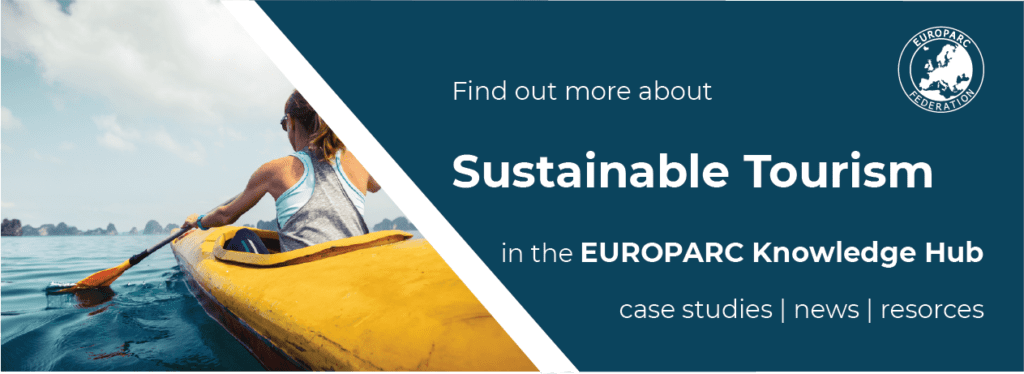3 new Parks join the European Charter for Sustainable Tourism!
Ligurian Alps Regional Nature Park. Statue of the Redeemer - Monte Saccarello © Gabriele Cristiani
The European Charter for Sustainable Tourism (ECST) is a methodology to support sustainable development around Protected Areas. In 2021 three new Parks joined the “Charter Network”.
Sustainable tourism is Good for Parks, Good for People!
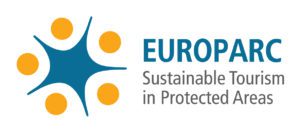
Logo of “The Charter”
Tourism is a booming business. It produces almost 5% of the world’s economic turnover, employs around 200 million people globally and is the fastest growing industry. Tourism is also one of the main economic drivers of Europe’s rural economies; directly and indirectly, it accounts for around 10% of European GDP and 20 million jobs. Protected Areas are drivers of tourism in rural areas, something that was only amplified during the COVID-19 pandemic. As such, it’s more important than we employ methods for sustainable tourism in our natural heritage. The ECST is a methodology that helps Parks and regional institutions create tourism that is good for Parks and good for people.
Three new members
Every year Parks around Europe start the process of joining this network of Sustainable Tourism experts. In 2021 we were happy to welcome three new Protected Areas:
Isola Pantelleria National Park
This National Park is located on the Island of “Isola”, situated in the Mediterranean Sea. Its location results in a unique mix of floara and fauna species. The whole area of the island has now become Charter Area. The National Park hosts a number of ecological and touristic highlights. The most famous is the “Venus Lake”, which has a brilliant blue colour. However, it’s not just natural wonders that make this island so interesting for tourists. Traditional agricultural practices and the art of dry stone walls are also included on the UNESCO List of Intangible Cultural Heritage of Humanity.
The decision to join the Charter fits in with overall aims of sustainable development of the National Park, and we are happy to welcome them and see this development grow.
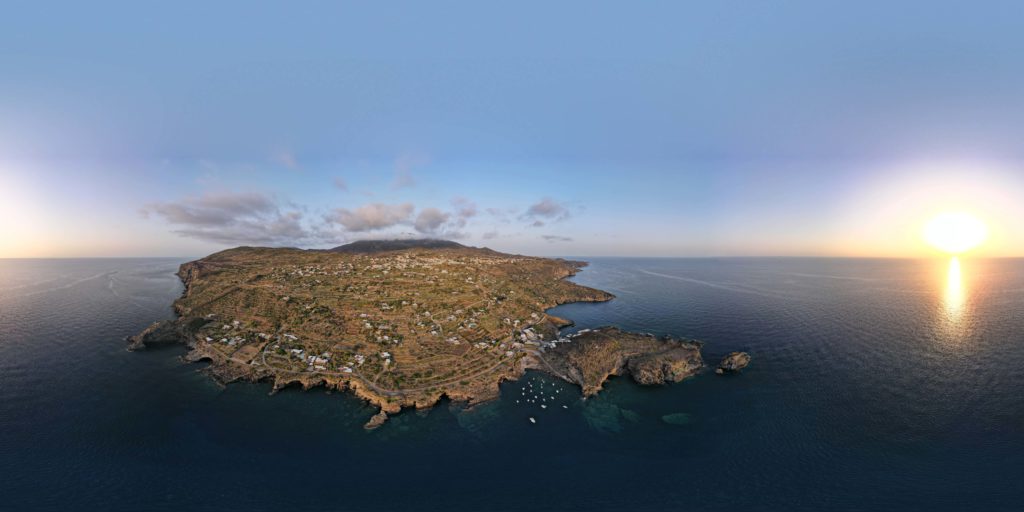
Isola Pantelleria National Park – Pantelleria Island © Clara Garsia
Ligurian Alps Regional Nature Park
The Natural Regional Park of the Ligurian Alpes is a Regional Natural Park – IUCN Category V. Specifically, within the park there are fifteen sites belonging to the Natura 2000 network: seven Special Protection Areas and eight Special Areas of Conservation. Although it offers many natural resources linked to outdoor activities like hiking, rafting, climbing and canyoning, the area’s annual visitors is limited. Through the Charter, the goals is to develop green tourism and support sustainable regional development, whilst involving a large group of stakeholders. The Park states:
For the Parco Naturale Regionale delle Alpi Liguri the European Charter for Sustainable Tourism is a great achievement.
“Local administrators, restaurant and hotel owners, companies, guides and associations have worked together for the same territory; the Charter is the recognition of this collective and community commitment and, from now on, it will be a compass to work on the path traced in cooperation with the Park guided by the same objective and with the cardinal points of the Charter to make a concrete community.”
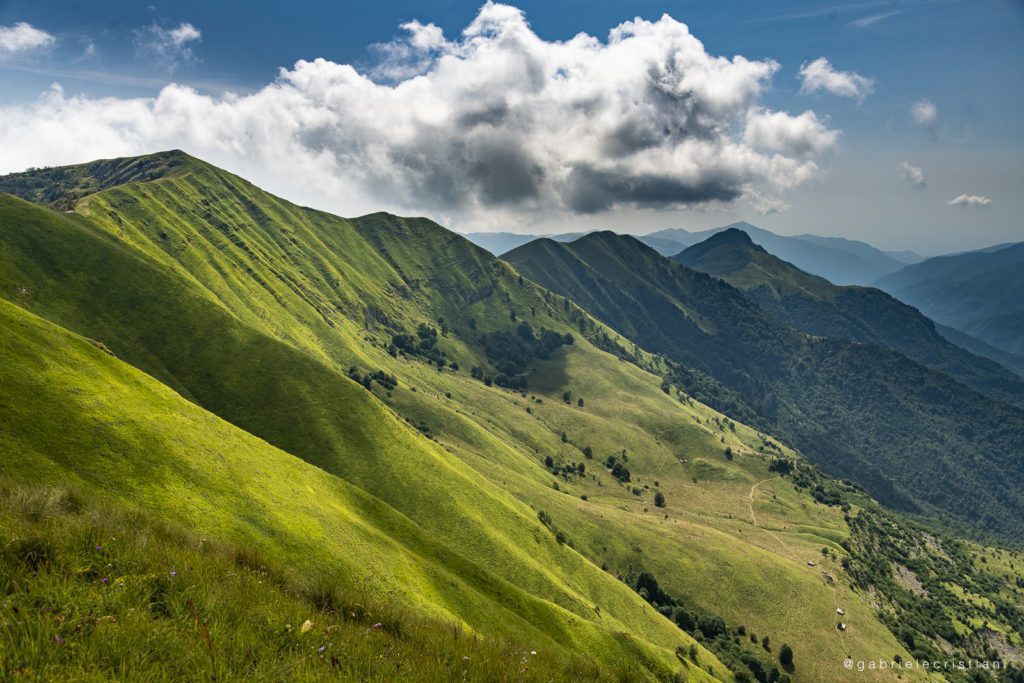
Ligurian Alps Regional Nature Park – Passo Pian Latte © Gabriele Cristiani
Vesuvio National Park
When visiting this Protected Area, you can feel the history that stretches back to the pre-Roman period. It’s an area, in which natural processes and human dynamics and settlements have always been tightly intertwined. The area includes touristic highlights such as the UNESCO World Heritages Sites of Pompei and Ercolano, a beautiful coastal belt and historic villas.
The National Park was established in 1995 and is listed under IUCN Category II. It encompasses over 1000 hectares of Forest Protection Reserve. Furthermore, together with the surrounding coastal belt and the Ville Vesuviane, the National Park is included in the Man and Bisophere (MaB) UNESECO Reserve “Somma Vesuvio e Miglio d’Oro”, established in 1997. The Park also includes Natura 2000 sites.
With so much to offer, the area is a hotspot for tourism. Especially the Great Volcanic Cone experiences a lot of visitors. In recent years, the National Park has taken considerate steps to create a more sustainable and high quality tourism, one of which is applying to become part of the Charter.
At EUROPARC, we are very happy to welcome them into our Sustainable Tourism Network and look forward to the future developments within these areas. Do you also want to become part of the Network? Then have a look at the application process here.
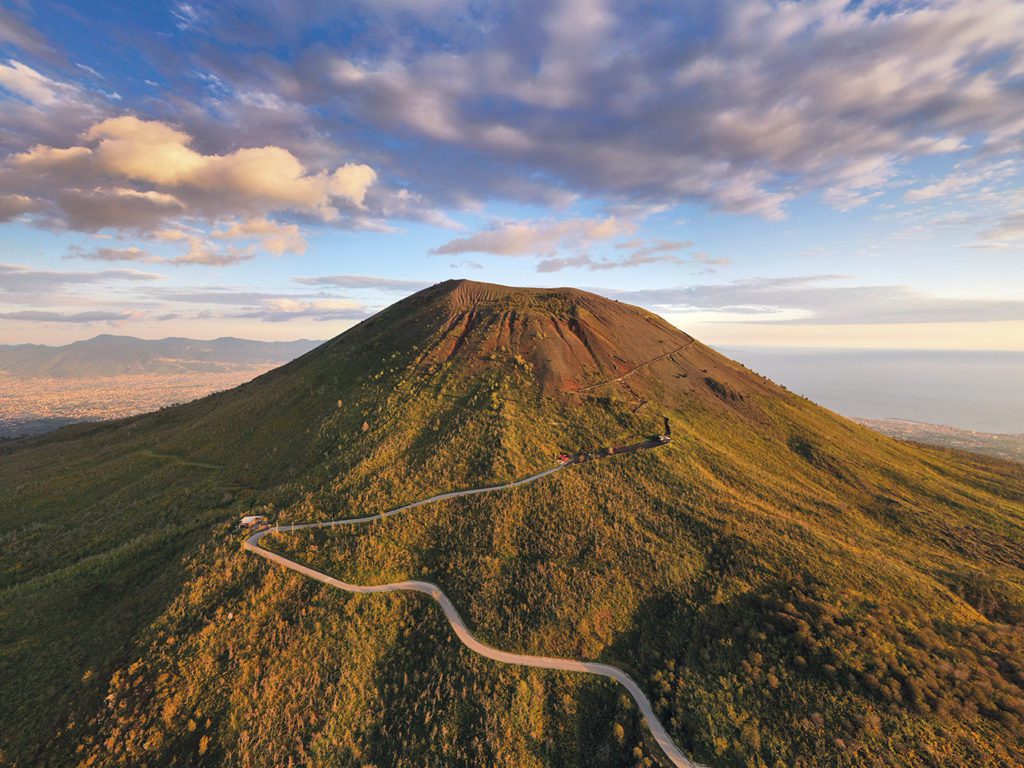
Vesuvio National Park – autumn sunset © Carlo Falanga
